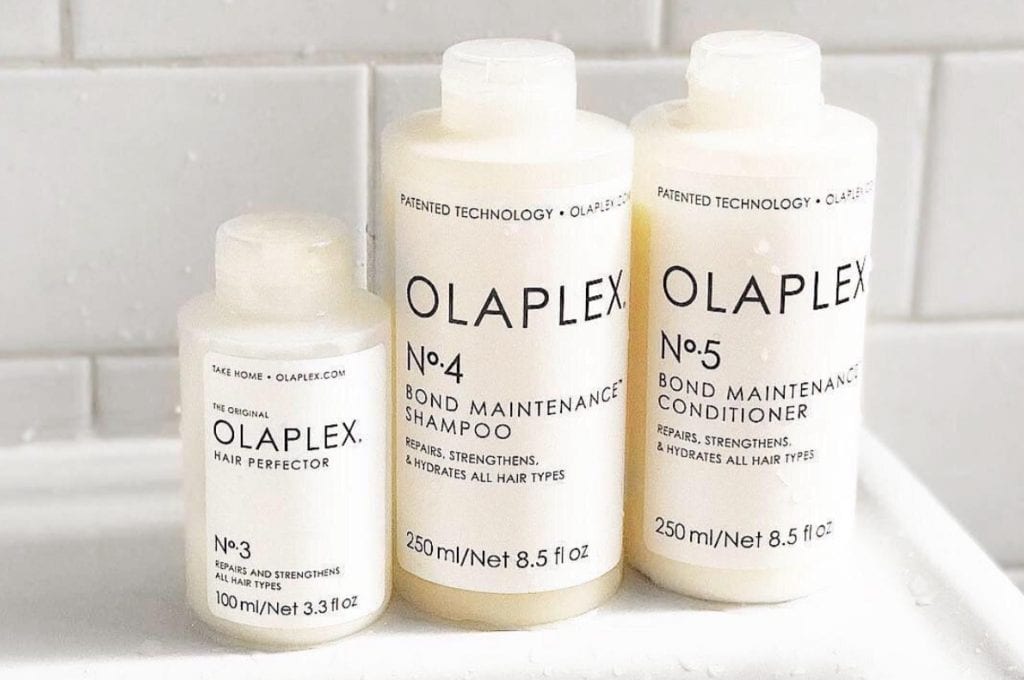“The Walmart Marketplace is rife with counterfeit products,” a buzzy haircare company asserts in a new lawsuit, and the fakes are not limited to those being sold by third parties but also include the products being marketed by Walmart, itself. According to the case that Olaplex filed in California Central District Court last week, Walmart has “knowingly, willfully, intentionally, fraudulently, and maliciously” distributed and sold “unauthorized imitation” Olaplex products, including counterfeit versions of its popular “Hair Perfector No. 3.”
Santa Barbara-based Olaplex – which says that its products have been described by haircare industry leaders as “game changing” and the “holy grail of hair product[s]” – asserts that while its products are sold by authorized retailers in “more than 80 countries around the world,” Walmart is not on that list. It is not necessarily illegal for a retailer to offer up authentic products even if it is not in the brand’s authorized distribution network, but that is allegedly not what is going on here.
Olaplex, which is known for its strengthening bond builder products, alleges that it Walmart is selling counterfeit products that bear “confusingly similar and substantially indistinguishable imitations of the Olaplex trademarks.” The brand discovered this, it says, when it purchased a seemingly authentic Olaplex product from Walmart’s marketplace only to discover that it was counterfeit. Not only do the presence of counterfeits – which “have not undergone the strenuous quality control of Olaplex” – cause harm to “Olaplex and its goodwill,” these fakes “serve as a public health hazard to any unsuspecting user,” the complaint asserts.
And unsuspecting consumers are. “Consumers may go to questionable websites and have a suspicion that the product they are purchasing may be counterfeit,” the brand argues. “ However, consumers would never expect to obtain such dangerous counterfeit product from the largest retailer in the U.S., Walmart.”
“When the consuming public visits Walmart.com, they expect that the products purchased will be of the best quality and, of course, legitimate product created by the manufacturer. Unfortunately, that is not the case here,” per Olaplex, which claims that it attempted to remedy the issue with Walmart but the retail giant “failed to respond,” prompting it to file suit.
Olaplex argues that “the likelihood of confusion, mistake, and deception engendered by Walmart’s misappropriation” of its trademarks has “caused irreparable harm to the goodwill symbolized by [its]] trademarks, [its] reputation for quality products, and the efficacy of [its] anti-counterfeiting efforts.”
In setting forth claims of trademark counterfeiting, infringement, and dilution, unfair competition, and false designation of origin, Olaplex is seeking a permanent injunction, which would prohibit Walmart from continuing to offer for sale and sell any counterfeit or infringing goods. More than that, Olaplex wants Walmart to pay up an array of monetary damages and disclose the supplier of such counterfeits.
A spokesman for Walmart told TFL of the pending case, “We respect the intellectual property rights of others. Olaplex first raised claims around several of these products less than a month ago and elected to file this litigation while we were looking into them. We take allegations like this seriously and will respond as appropriate with the court.”
The lawsuit comes six months after fellow haircare brand Dermalogica filed a very similar suit against Target for allegedly selling counterfeits goods, and in the midst of a larger global fight in which increasingly image-conscious and aggressive brands are seeking the ability to block retailers from selling even authentic products on various online platforms, such as Amazon, in order to preserve the luxury or premium image of the goods and the brands as a whole.
*The case is Olaplex, LLC et al v. Wal-Mart.com USA, LLC et al, 2:19-cv-04310 (C.D. Cal.).











